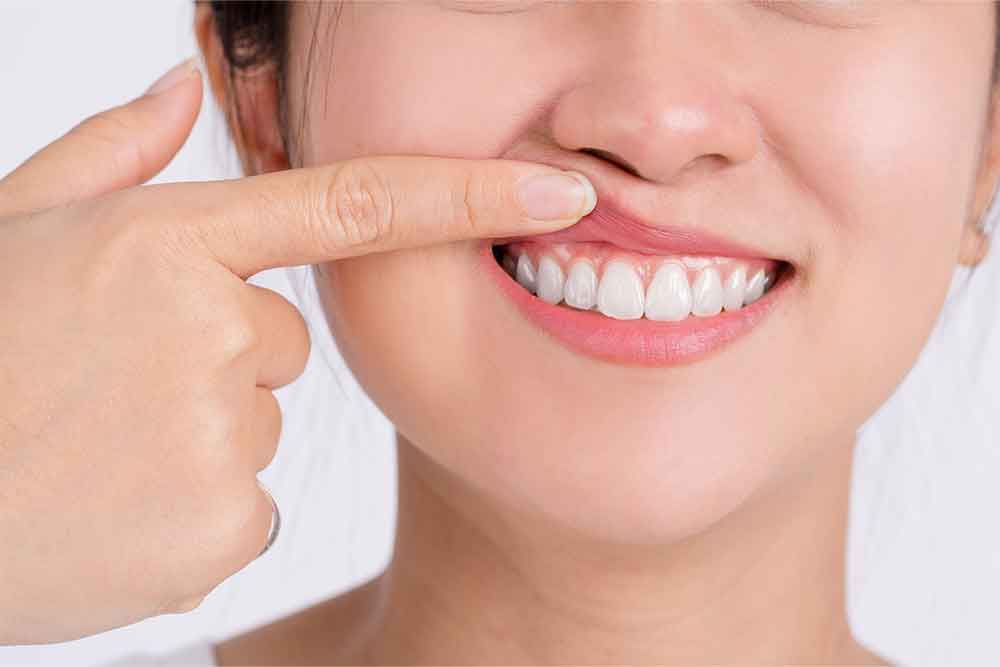With the start of the new year, you might be considering getting braces to improve your smile. While there are multiple benefits to braces and orthodontic care, you might worry that braces cause gum recession. If this is one of your concerns, keep reading to learn more about the relationship between gum recession and braces.
What is gum recession?
Gum recession is when the gum tissue surrounding the teeth wears away or pulls back and exposes more of the tooth. When gum recession occurs, “pockets,” or gaps, form between the teeth and gum line, making it easy for disease-causing bacteria to build up.” If you don’t consult with a dentist to treat gum recession, your teeth could become so damaged the dentist needs to remove them.
Can braces cause gum recession?
As stated above, sometimes people believe that braces lead to gum recession. However, there is no indisputable evidence that this is the case. In fact, there are many other reasons for gums to recede and leave your teeth vulnerable to bacteria and disease:
- Poor brushing – Using a brush with hard bristles or brushing too aggressively can strip away your teeth’s enamel and lead to injured and recessed gums.
- Genetics – Having thin bones and gums makes you more vulnerable to gum recession.
- Tobacco use – Smoking or chewing tobacco is unhealthy for your whole body, particularly your mouth, as the nicotine eats away at your gums and makes it more susceptible to bacteria.
- Poor dental treatment – Fillings and crowns placed incorrectly can lead to inflammation and bacteria growth along your gum line.
- Periodontal disease – Bacteria growing in your gums, teeth, and bones causes gum disease like gingivitis, which causes inflammation along your gums that can lead to gum recession.
- Jaw clenching or teeth grinding – Both of these cause you to put unnecessary force on the bones in your mouth. If these bad habits aren’t corrected, the added pressure will force your gums to recede from the bones.
- Poor bite – If your teeth are crooked or you have an over- or underbite, you put added pressure on your gums, which can cause gum recession.
Can braces prevent gum recession?
While braces can’t treat most of the reasons for gum recession, one thing they can do is correct a misaligned bite and improve oral health. If you have crooked teeth, it can be hard to reach all the surfaces of your teeth while brushing. This can lead to plaque and bacteria build-up, which can cause periodontal disease. Braces correct these crooked teeth, leading to a cleaner mouth and less chance of gum recession. Braces can also correct overbite and underbites, which can prevent gum recession resulting from too much pressure on your teeth.
If you are considering getting braces, don’t let the fear that braces cause gum recession hold you back from improving your smile. Contact Smith Orthodontics for your free consultation and to ask any questions you have about braces and gum recession. It’s a new year – time for a new smile!
